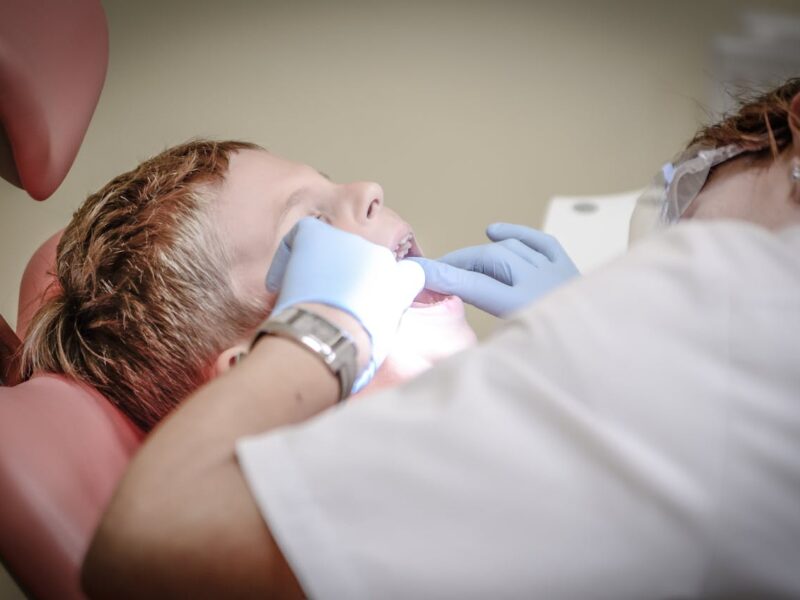Are wisdom teeth bad for you? Well, it can go either way. They don’t cause cavities or get sensitive.
But, like every part of our body that is not useful, we tend to remove them when they get infected.
But as regular as wisdom teeth are, we should know what triggers the necessity of removing them or what you can do to alleviate the problem.
Here are some wisdom teeth myths we need to debunk and the truths that prove them.
Contents
1. Everyone Must Remove Their Wisdom Teeth
Wisdom teeth have a notorious reputation in the oral health world because of the belief that you must remove them before they can cause any lasting damage. Unfortunately, this is a myth, and wisdom teeth don’t necessarily require removal.
Some people may develop an infection or may experience the teeth shifting and causing crowding in the back of the mouth, but removal is not always mandatory. If the teeth come in with no complications, you can keep them in your mouth without any issues or pain. You should decide to remove wisdom teeth after careful consideration and discussion with a dentist.
Another common myth about wisdom teeth is that their removal affects the remaining teeth. However, this is not true. The removal of wisdom teeth does not involve the other healthy teeth and is no more likely to cause damage or shift the remaining teeth than leaving them in.
It is important to take note of the individual’s own dental health, and if the teeth are impacted or causing negative health effects, then removal is a consideration. However, it is always best to discuss this with a dentist to determine if wisdom teeth removal is necessary.
If you need to remove your wisdom teeth, look for an “oral surgeon near me.” Research and look for dentists with experience in the procedure to ensure the best results. Make sure to get the proper after-care procedures after the extraction to prevent any complications from occurring.
2. Wisdom Teeth Removal is Painful
Extraction is usually pain-free, and many doctors will provide the patient with local anesthetics to help during the process. Moreover, many removal specialists offer sedation dentistry to put the patient at ease. Depending on the doctor’s recommendation, oral sedation or IV sedation can ease wisdom tooth pain and make the extraction process more bearable.
While wisdom teeth may cause some discomfort, the pain associated with them is often temporary and localized to the jaw. It is important to remember that the pain associated with a wisdom tooth is no worse than any other kind of tooth extraction.
Additionally, the body does not feel any additional pain because of the removal of wisdom teeth. In fact, if the teeth are monitored closely and properly cared for, it is possible to avoid any pain at all. The best way to prevent pain due to wisdom teeth is to get regular dental check-ups and, if necessary, have them removed in a timely manner.
3. The Removal Procedure is Expensive
It’s easy to think that wisdom teeth removal is expensive. However, the truth is that it doesn’t have to cost a fortune.
There are plenty of ways to save on the cost. For example, many insurance companies cover the cost of wisdom teeth removal in some cases, which can help take the financial burden off families.
Additionally, some dentists offer discounts and payment plans for those who need to get their wisdom teeth removed. That can make it much easier to afford the procedure.
It’s important to remember that removing wisdom teeth far outweighs any financial costs. The physical and emotional relief of getting them removed and avoiding unnecessary future dental issues is worth every penny.
Despite the myths, the removal procedure is affordable if done right. Extraction costs are now comparable to the cost of preventive dental care.
4. Wisdom Teeth Serves No Purpose
The notion that wisdom teeth serve no purpose is a common misconception. In reality, a well-positioned wisdom tooth can help to keep other teeth in line, improve chewing, and provide a good spot to bridge the gap with a missing tooth.
However, it can be argued that wisdom teeth don’t add any real value. Without them, you wouldn’t experience any problems or perceivable effects. Since they are prone to decay and other problems, it’s sometimes best to get them removed.
5. Smoking and Drinking are Harmful After Extraction
Regarding post-extraction health risks, smoking and drinking are not harmful after extraction. While it’s still best to avoid smoking and drinking after wisdom tooth removal, moderate drinking and smoking are unlikely to cause other health risks. Wisdom tooth extraction can be a safe and beneficial dental procedure with proper care.
Another common myth about wisdom teeth extraction is that you can’t brush your teeth after the procedure. It is false. Good oral hygiene is important for any dental procedure, and it is important to maintain good oral hygiene after wisdom teeth extraction.
Immediately after the extraction, blood clotting is necessary to promote healing, so taking extra care to avoid disruption of the clot is key. Gentle rinsing with salt water is also recommended. However, brushing can be done as soon as the extracted site feels comfortable.
For a few days after extraction, it is best to be gentle when brushing and to use a soft-bristled toothbrush. Regular brushing and flossing is the best way to prevent infection, reduce gum inflammation, and promote healing.
Are Wisdom Teeth Bad?
Wisdom teeth are often misunderstood, but they’re needed for proper occlusion and alignment of other teeth. Wisdom teeth should not be considered a potential risk but a benefit to your dental health.
Therefore, if your dentist recommends the extraction of your impacted wisdom teeth, it is essential to seek their advice and ask questions like “are wisdom teeth bad.” It ensures that you make the best decision for your dental health.
Have this article helped you out? For more information, check out other related topics on our blog!



